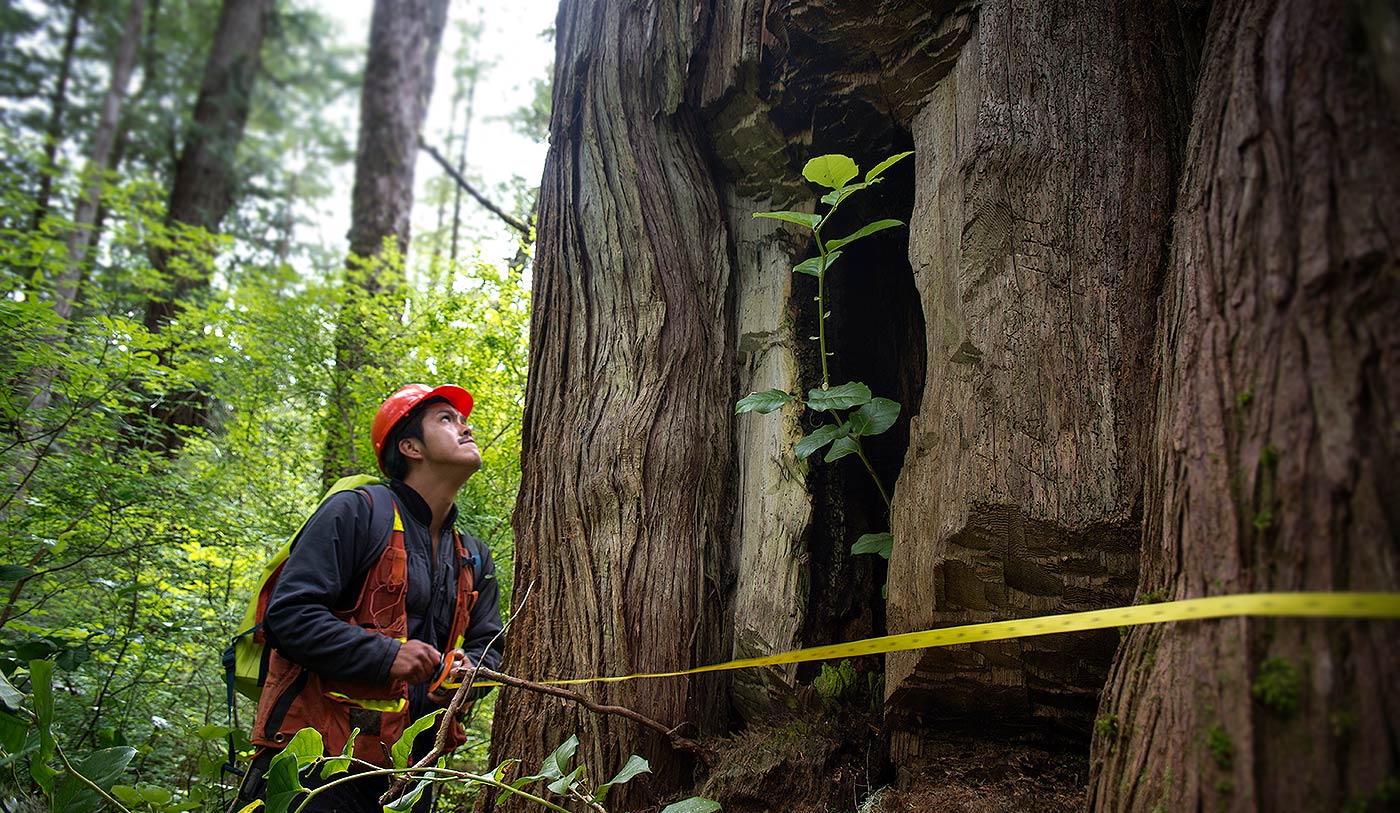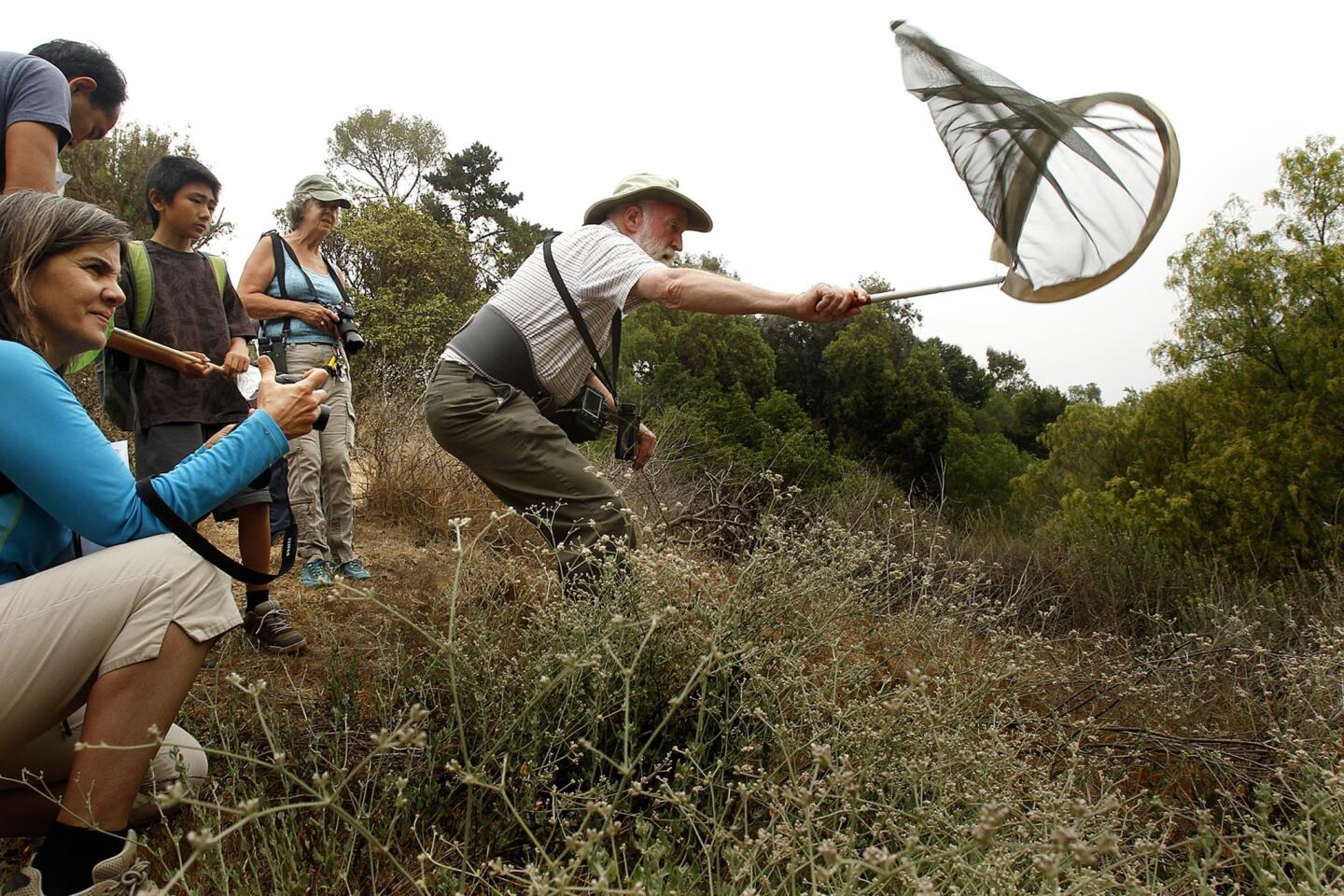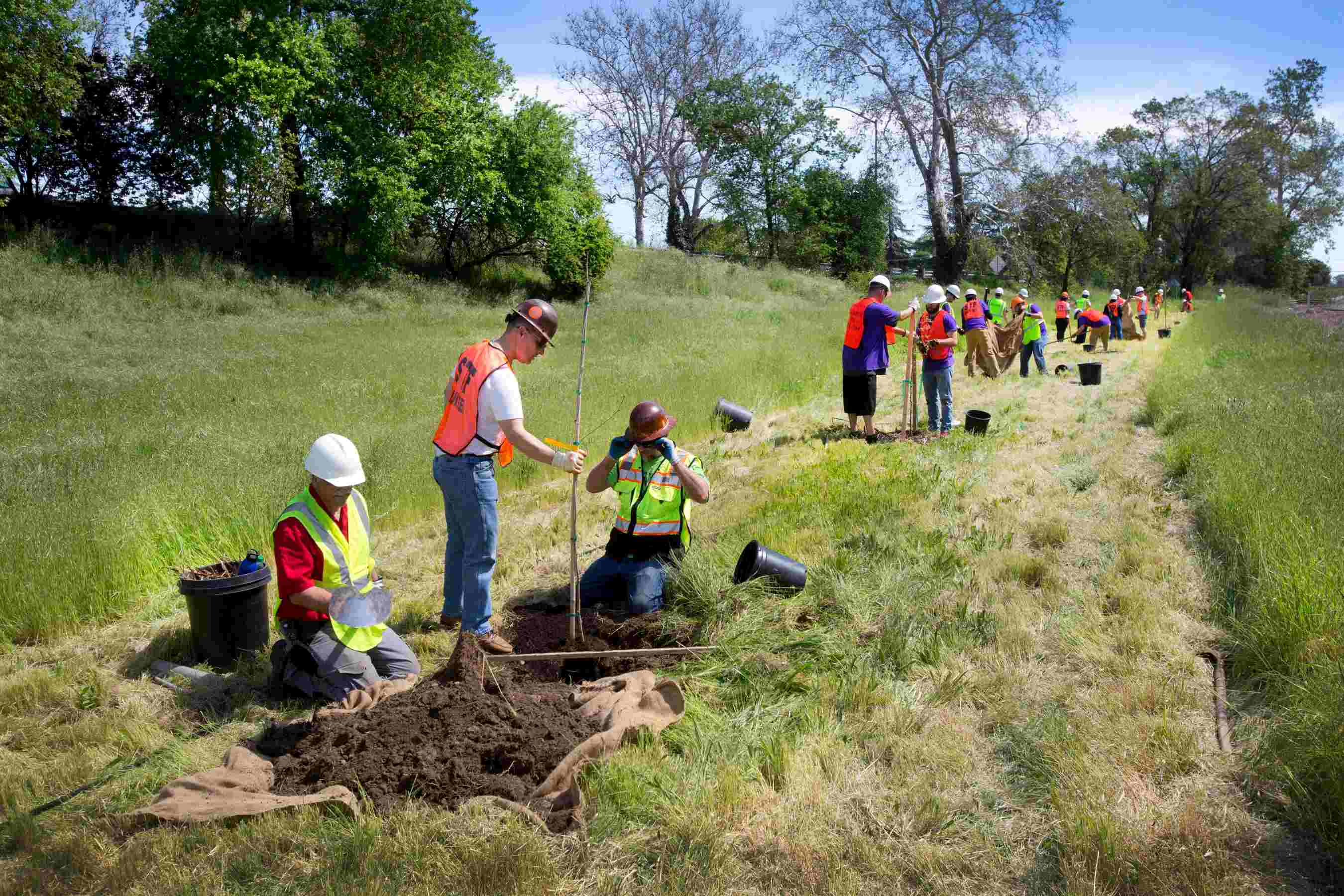Home>Gardening News and Trends>Latest News>Where To Study Permaculture In California


Latest News
Where To Study Permaculture In California
Published: February 15, 2024
Discover the latest news and information on where to study permaculture in California. Find the best programs and courses to learn about sustainable living and ecological design.
(Many of the links in this article redirect to a specific reviewed product. Your purchase of these products through affiliate links helps to generate commission for Chicagolandgardening.com, at no extra cost. Learn more)
Table of Contents
Introduction
Permaculture, a term coined by Bill Mollison and David Holmgren in the 1970s, is a sustainable design system that integrates human activities with natural ecosystems to create harmonious and regenerative environments. The word "permaculture" itself is a blend of "permanent" and "agriculture," reflecting its core principles of long-term sustainability and ecological balance.
Permaculture is not just a method of sustainable agriculture; it is a holistic approach to life that encompasses ethics, principles, and design techniques. Its core ethics—earth care, people care, and fair share—guide practitioners in creating systems that benefit both people and the planet. Through thoughtful observation and mimicry of natural patterns, permaculture aims to minimize waste, maximize productivity, and foster resilience in the face of environmental challenges.
As the urgency of environmental conservation and sustainable living becomes increasingly apparent, the interest in permaculture has surged, leading to a growing demand for educational programs and training opportunities. California, known for its diverse ecosystems and progressive environmental initiatives, stands as a hub for permaculture education, offering a range of programs and resources for aspiring permaculturists.
In this article, we will explore the world of permaculture education in California, highlighting the benefits of studying permaculture and providing an overview of the various programs, courses, workshops, and events available in the state. Whether you are a budding environmental enthusiast, a seasoned gardener, or simply curious about sustainable living, delving into the realm of permaculture education can offer valuable insights and practical skills for creating a more resilient and regenerative future.
What is Permaculture?
Permaculture is a multifaceted approach to sustainable living that encompasses principles, ethics, and design strategies aimed at creating resilient and regenerative systems. At its core, permaculture seeks to emulate the patterns and relationships found in natural ecosystems, integrating human settlements, agriculture, and landscapes in a harmonious and mutually beneficial manner.
Central to permaculture are its three core ethics: earth care, people care, and fair share. These ethics serve as guiding principles for decision-making and design, emphasizing the importance of environmental stewardship, social responsibility, and equitable resource distribution. By adhering to these ethics, permaculture practitioners strive to create systems that not only sustain life but also enhance the well-being of both people and the planet.
Permaculture design is rooted in observing and learning from nature, recognizing the interconnectedness of all living beings and the intricate patterns that support ecological balance. By applying principles such as diversity, interdependence, and resource efficiency, permaculturists aim to design systems that are self-regulating, productive, and resilient in the face of changing environmental conditions.
Permaculture principles guide the development of regenerative landscapes, agroecological practices, and sustainable human habitats. From water harvesting and soil regeneration to agroforestry and natural building techniques, permaculture offers a comprehensive framework for creating thriving ecosystems and communities that work in harmony with nature.
Ultimately, permaculture is a mindset—a way of thinking and acting that encourages conscious and regenerative living. It empowers individuals to become active participants in shaping a sustainable future, fostering a deep sense of connection to the natural world and a commitment to leaving a positive legacy for future generations.
Benefits of Studying Permaculture
Embarking on a journey to study permaculture offers a myriad of benefits that extend beyond acquiring practical skills. Whether you are interested in sustainable agriculture, ecological design, or community resilience, delving into the world of permaculture education can be a transformative and enriching experience.
One of the primary advantages of studying permaculture is gaining a comprehensive understanding of sustainable living practices. Permaculture education provides insights into regenerative agriculture, ecosystem restoration, and resource-efficient design, empowering individuals to make informed choices that contribute to environmental conservation and ecological balance.
Furthermore, studying permaculture fosters a deep connection to nature and a sense of environmental stewardship. Through hands-on learning experiences and immersive design projects, students develop a profound appreciation for the natural world and gain the tools to actively participate in creating resilient and biodiverse landscapes.
Permaculture education also nurtures a strong sense of community and collaboration. By engaging in group projects, workshops, and practical exercises, students have the opportunity to connect with like-minded individuals and build a network of support within the permaculture community. This sense of camaraderie and shared purpose enhances the learning experience and provides a platform for ongoing knowledge exchange and mutual support.
Moreover, studying permaculture equips individuals with practical skills that can be applied in various contexts. Whether designing sustainable homesteads, implementing regenerative agriculture practices, or advocating for environmental policy changes, the knowledge and techniques gained through permaculture education are versatile and adaptable to diverse settings and challenges.
Finally, delving into permaculture education cultivates a holistic mindset that transcends the realm of sustainability. It encourages critical thinking, creative problem-solving, and a deep understanding of interconnected systems, preparing individuals to address complex environmental and social issues with innovative and integrated solutions.
Permaculture Programs in California
California, renowned for its ecological diversity and progressive environmental initiatives, offers a rich tapestry of permaculture programs and educational opportunities. Whether you are seeking formal certification courses, hands-on workshops, or immersive learning experiences, the Golden State provides a fertile ground for delving into the principles and practices of permaculture.
Several institutions and organizations in California are dedicated to offering comprehensive permaculture programs, catering to individuals with varying levels of experience and areas of interest. From introductory courses that provide a foundational understanding of permaculture ethics and design to advanced programs focusing on regenerative agriculture, ecological restoration, and community resilience, there are abundant options for aspiring permaculturists.
Many permaculture programs in California emphasize experiential learning, integrating classroom instruction with practical fieldwork and design projects. This hands-on approach allows students to apply permaculture principles in real-world settings, honing their skills and deepening their understanding of sustainable design and land stewardship.
Furthermore, California’s permaculture programs often feature renowned instructors and practitioners who bring a wealth of knowledge and expertise to the classroom. Students have the opportunity to learn from seasoned professionals and engage in meaningful discussions and mentorship, enriching their educational journey and expanding their professional network within the permaculture community.
Moreover, the collaborative and inclusive nature of permaculture education in California fosters a vibrant and supportive learning environment. Many programs encourage peer-to-peer learning, group projects, and community engagement, providing students with a platform to connect, share ideas, and collaborate on initiatives that promote sustainability and ecological resilience.
Whether you are drawn to the coastal landscapes of Northern California, the agricultural regions of the Central Valley, or the diverse ecosystems of Southern California, there are permaculture programs and educational centers scattered throughout the state, offering a diverse array of learning opportunities that cater to the unique environmental contexts and cultural dynamics of different regions.
Permaculture Design Courses
Permaculture design courses serve as foundational platforms for individuals looking to immerse themselves in the principles and practices of sustainable living and ecological design. These courses typically cover a wide range of topics, including permaculture ethics, design principles, regenerative agriculture, water management, agroecology, and sustainable building techniques.
In California, permaculture design courses are offered by various educational institutions, permaculture organizations, and experienced practitioners. These courses are designed to provide participants with a comprehensive understanding of permaculture principles and equip them with the skills necessary to design and implement regenerative systems in diverse environments.
Permaculture design courses often incorporate hands-on learning experiences, site visits, and design projects, allowing participants to apply theoretical knowledge to practical applications. By engaging in design exercises and real-world projects, students gain valuable insights into the complexities of ecological design and develop the ability to create holistic and resilient landscapes.
Furthermore, permaculture design courses in California emphasize the integration of indigenous wisdom, traditional ecological knowledge, and modern innovations, reflecting the state’s cultural and environmental diversity. This approach enriches the educational experience, providing participants with a broad perspective on sustainable design practices and fostering a deep appreciation for the interconnectedness of nature and human society.
Upon completion of permaculture design courses, participants are equipped with the essential skills to assess landscapes, analyze ecosystems, and develop regenerative design solutions. Whether aspiring to become permaculture designers, consultants, educators, or land stewards, graduates of these courses are empowered to contribute to the creation of resilient and thriving environments that embody the principles of permaculture.
Permaculture Workshops and Events
Permaculture workshops and events play a vital role in fostering hands-on learning, community engagement, and knowledge sharing within the field of sustainable design and ecological stewardship. In California, a diverse array of workshops and events cater to individuals interested in delving into specific aspects of permaculture, honing practical skills, and connecting with like-minded enthusiasts.
These workshops and events cover a wide range of topics, including organic gardening, natural building, food forestry, soil regeneration, water conservation, and permaculture-based livelihoods. Hosted by experienced practitioners, educators, and permaculture organizations, these gatherings offer immersive learning experiences that inspire and empower participants to implement regenerative practices in their own lives and communities.
Moreover, permaculture workshops and events often feature hands-on demonstrations, site tours, and interactive sessions, allowing participants to gain practical insights and valuable skills that can be applied in diverse settings. Whether it’s learning about composting techniques, designing integrated water systems, or exploring agroecological principles, these experiential opportunities enrich the learning journey and provide a platform for peer-to-peer knowledge exchange.
California’s diverse ecological landscapes serve as ideal backdrops for hosting permaculture workshops and events, offering participants the chance to witness sustainable design principles in action within different environmental contexts. From urban permaculture workshops in bustling city centers to rural retreats that showcase off-grid living and sustainable homesteading, these events provide a holistic perspective on the versatility and adaptability of permaculture practices.
Furthermore, permaculture workshops and events serve as catalysts for community building and networking, fostering connections among individuals passionate about sustainable living and ecological regeneration. Participants have the opportunity to engage in meaningful discussions, collaborative projects, and skill-sharing activities, creating a vibrant and supportive community dedicated to creating positive change through permaculture.
By actively participating in permaculture workshops and events, individuals can deepen their understanding of sustainable design practices, expand their skill set, and forge meaningful connections with fellow practitioners, ultimately contributing to the advancement of regenerative and resilient communities in California and beyond.
Conclusion
Exploring the realm of permaculture education in California unveils a tapestry of opportunities for individuals passionate about sustainable living, ecological design, and community resilience. From formal certification programs to hands-on workshops and events, the state offers a diverse array of avenues for delving into the principles and practices of permaculture.
Studying permaculture not only equips individuals with practical skills and knowledge but also fosters a deep connection to nature, a sense of environmental stewardship, and a holistic mindset that transcends the realm of sustainability. By embracing permaculture ethics and design principles, students can actively contribute to creating resilient and regenerative systems that benefit both people and the planet.
Moreover, the collaborative and inclusive nature of permaculture education in California cultivates a vibrant and supportive learning environment, fostering connections among like-minded individuals and providing a platform for ongoing knowledge exchange and mutual support.
As the urgency of environmental conservation and sustainable living continues to grow, the significance of permaculture education becomes increasingly apparent. By engaging in permaculture programs, design courses, workshops, and events, individuals have the opportunity to gain the skills, insights, and inspiration needed to become catalysts for positive change in their communities and beyond.
Whether aspiring to design regenerative landscapes, cultivate sustainable livelihoods, or advocate for ecological resilience, the principles and practices learned through permaculture education in California can empower individuals to become active participants in shaping a more harmonious and regenerative future for all.






